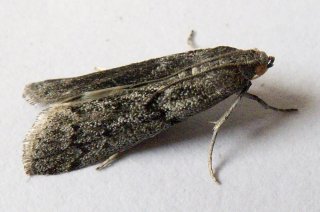
RP2 Mutation genetics in the flour moth, Ephestia kuehniella
This research project focuses on a major problem in Ephestia rearing. The eggs of this moth are used as food for many natural insects, but the scales of the adults cause major allergy problems for biocontrol professionals. This project will explore the potential of a naturally occurring scaleless mutant in Ephestia moths, and investigate its genetic and developmental mechanisms and possible pleotropic effects.
The Mediterranean flour moth, Ephestia kuehniella, had been an early model of developmental genetics in Lepidoptera. Currently, the eggs of this species are used for the production and performance of natural enemies in biological control, but the scales of the adults cause major allergy problems for biocontrol professionals. Considering the importance of mass production of Ephestia eggs for breeding parasitoids such as Trichogramma and considering possible health hazards for workers in rearing facility, the main objective of the project is to explore the potential of scale mutants of Ephestia.
We aim to characterize inheritance and performance of the only available scaleless (Scl) mutation of Ephestia with an unique female-limited expression, and to investigate the genetic and developmental mechanisms of the scaleless phenotype. This includes determining the mechanisms behind the sex-specific expression and the pleiotropic effects on female fecundity and other life history parameters. In addition, we intend to identify candidate genes of the sex determination pathway using bioinformatic tools and methods of molecular genetics and determine their role in the sex-specific expression of the scaleless phenotype. The PhD candidate will also conduct laboratory experiments to identify and isolate new scale mutations using classical genetic approaches, by screening of natural populations and by mutation experiments.